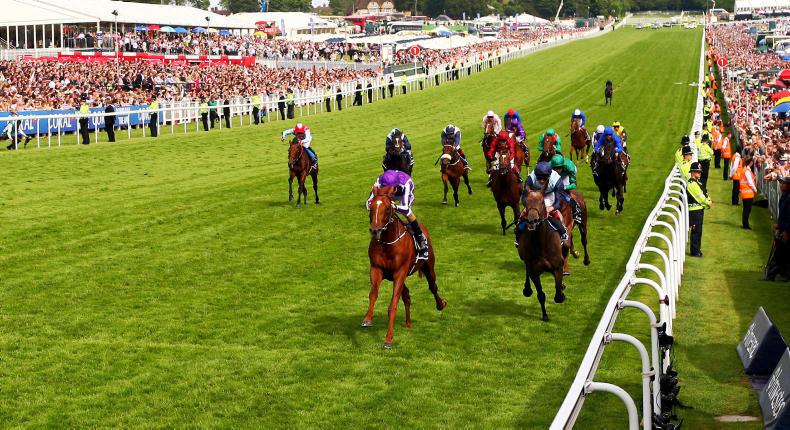WITH Saxon Warrior figuring as an odds-on favourite for the Derby, the mind tends to be drawn back to previous hotpots and their various fates.
In the last 40 years, we have had Shergar and Camelot justifying similar odds, but El Gran Senor, Entrepreneur and Tenby saw money-buyers suffering burnt fingers.
El Gran Senor’s narrow defeat at the hands of Secreto was a calamity for punters, and that scenario was repeated a couple of years later when Dancing Brave failed to overhaul Shahrastani. El Gran Senor and Dancing Brave were two of the best horses I’ve ever watched on the small screen, but their respective defeats at Epsom leave a taint on their records which shows just how important the Derby is in terms of legacy.
Ask anyone who watched those races for their memories, and heads will shake sadly. Unfortunately, many people blame the jockeys, with Pat Eddery and Greville Starkey the whipping boys more often than not. How unfair that is.
Both Starkey and Eddery rode Epsom superbly as a rule, and the former’s success on Shirley Heights in 1978 is one of the great smash-and-grab victories in recent Derby history, with the colt switched to produce a stunning late burst under Greville’s inimitable drive.
BRILLIANT
Eddery won the ultimate prize three times, and his handling of the brilliant but difficult Golden Fleece to win in 1982 is one of the most underrated riding performances in my recollection of the race.
Both are roundly blamed for getting their mounts beaten, but the truth tells a different tale.
I can still hear Graham Goode’s commentary as the 1984 Derby field entered the final quarter mile: “On the outside comes Secreto making ground, but look at El Gran Senor. He’s absolutely cruising!” And he was, with Pat sitting motionless as Christy Roche got down to drive Secreto for all he was worth.
Pat’s instructions from the great Vincent O’Brien were simple: “The longer you wait, the further you’ll win,” said Vincent, and Pat rode accordingly.
At the two pole, it was a match, and Eddery stole a glance to confirm this fact before nudging the favourite into the bridle.
At the furlong marker, with Secreto sticking like glue, Pat finally asked for an effort, but despite edging into a narrow lead, the acceleration which characterised his Newmarket win was absent.
LIKE A DEMON
The race became a fight, with El Gran Senor responding to pressure, but unable to pull away, and Roche, riding like a demon, forced Secreto into a share of the lead with fifty yards to go, before edging out the hot favourite in a photo.
Those who criticise Eddery feel he should have kicked on two furlongs out, but his mount was a brilliant miler with a turn of foot, and the fact that he couldn’t quicken a furlong out suggests that a big move earlier would have resulted in a wider margin of defeat.
Poor Greville is more harshly done by, although Dancing Brave was only a marginal ante-post favourite over eventual Derby winner Shahrastani, and the task he faced turning for home was exacerbated by a remarkable slowing of the pace before the field reached the summit of Tattenham Hill, and the fact that he didn’t immediately handle the downhill run.
SACKED
Greville took time to allow Dancing Brave to get balanced before launching that famous but despairing challenge which failed by half a length.
Many people still falsely believe that Starkey was sacked for his ride at Epsom, but that is nonsense, and Guy Harwood’s claim that he “would probably have won if he’d cut him in half” illustrates what a good rider Greville was, sacrificing the race for the horse, and probably enabling Dancing Brave to reach the heights he did.
His last-to-first triumph in the greatest flat race I’ve ever seen at Longchamp in October of that year is testament to the rider’s skills, even if Pat Eddery had taken over at that point. Starkey rode Dancing Brave to win the Eclipse on his first start after Epsom, and again at Goodwood later in the season, and only lost the ride to Eddery in the King George through injury.
Both were superb riders with an intuitive understanding of the horses they rode, and it’s a shame that they are unfairly remembered for mistakes they simply didn’t make.
